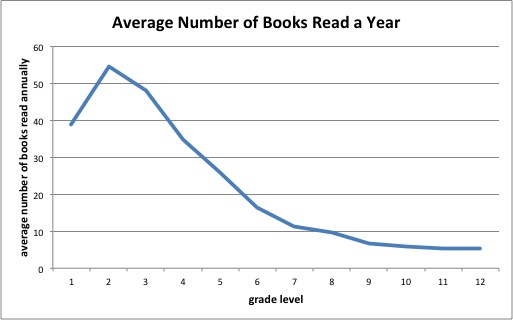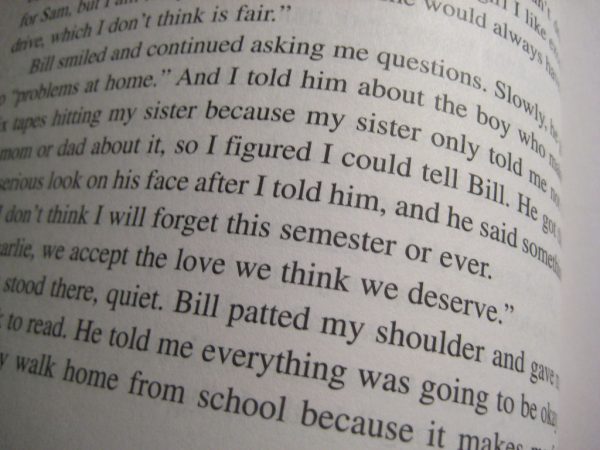Lifeless literature: The decline of reading amougst today’s youth
From the soliloquies of Shakespeare to the descriptions of Dickens, students face a daunting and often uninteresting workload in English. Reading holds significant importance for most students and youth, but student reading has declined due to the conduct of schools and the education system in general.
According to the U.S. Department of Education, “Over the last 15 years, 15 million students have graduated from high school reading at below the basic level.” Additionally, over 70% of high school individuals require remediation for lack of skills, especially with reading comprehension.
These statistics are troublesome due to the skills that reading teaches. Mr. Bowne, an English teacher, explained that reading teaches important linguistic concepts such as irony, satire, and metaphor. On a larger scale, he told of how reading helps students understand concepts beneath the surface of people and ideas.
Alongside this, reading promotes the formation of new ideas in the mind’s of students, particularly regarding worldly themes and issues. Reading stimulates the minds of students and enhances students’ mental capabilities.
However, a decline in students being able to perform the skills that reading teaches has become present. This decline in reading can be seen as the result of several problems that school youth face today.
The use of technology has been impactful in the decline of student reading. Lindsey Hoffman, a freshman, claimed that while technology doesn’t detract from literature in the classroom, it does offer a distraction once kids go home. She explained that technology, specifically iPads, rearrange students’ priorities, impeding their doing of schoolwork.
Mr. Bowne also emphasized that the rise of technology has proven a detriment to student reading. He said, “A lot of the problems we have in education is we don’t have kids read enough.” He claimed that the education system pushes shorter works of text on students, such as on the PARCC. Mr. Bowne explained that this may turn them off to enjoying longer forms of comprehensive reading, resulting in a decline in student reading in general.
Alongside this, with the rise of video games and social media, many students face the problem of interest in reading, or rather a lack thereof. Students wonder whether they will, for example, find more enjoyment in their video games or in dragging themselves through a dry novel. The majority of students find more interest in the first choice, choosing to participate in other activities rather than be uninterested while reading.
Arianna Resicher, a former homeschooled student, noted that the members of her old English class, comprised of other homeschooled students, enjoyed every discussed novel and fully participated in the
reading assignments.
In reference to Eastern, she said, “In contrast, I’m willing to bet that most of the students in my current English class don’t read the books assigned, and those that do read them, feel that the books are tiresome rather than enjoyable.
The problem isn’t with reading itself. Rather, it is with students being unable to find personal interest in their reading, especially in a world filled with distractions.
Preventive measures can be taken to counteract this problem. Choice books provide an option for counteracting this growing lack of interest. They allow students to choose topics that are of greater interest to them, resulting in increased enthusiasm for reading.
Alexa Grabelle is the founder of the charitable organization Bags of Books. This multi-state, international charity collects and donates books for underprivileged students, fostering passions for reading among youth. She said, “What I really find is that among students, especially younger students who may be more reluctant to read, that what is important is finding a topic of interest. Even the most reluctant readers can find a book that interests them. I feel like there is a book out there for everyone…”
From this, it can be noted that no two readers are the same. Students are unique in their interests, and this uniqueness must be considered by educators in order to combat the growing decline of student reading.
This is true for summer reading as well. Summer reading is extremely beneficial in that it combats the notorious “summer slide,” or the loss of students’ reading skills over the summer. Ms. O’Keefe, a freshman English teacher, said that summer reading can encourage student reading and can promote a culture of readers. “The other type of summer reading is to extend academics into the summer,” she said.
However, none of these purposes are being achieved. Several Eastern students claim that most students scramble to read their books in the final days of summer, failing to gain anything out of them except stress.
But, the problem of kids not reading completing their summer reading assignments, along with reading assignments in general, can be solved. According to Scholastic, “An overwhelming nine in ten kids say they are more likely to finish a book they picked out themselves.” Students need reading, but more so, students need reading that is interesting to them.
As Kate DiCamillo, the author of Because of Winn-Dixie, said, “Reading should not be presented to children as a chore, a duty. It should be offered as a gift.”











